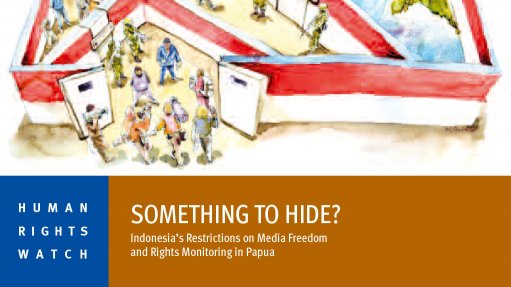
Indonesia’s President Joko Widodo—popularly known as Jokowi—announced on May 10, 2015, that the government would immediately lift longstanding access restrictions on accredited foreign journalists seeking to report from the provinces of Papua and West Papua (referred to as “Papua” in the rest of this Human Rights Watch report). The president’s announcement sparked optimism that Indonesia would soon end its decades-long restrictions not only on foreign reporters, but also on UN officials, representatives of international aid groups, and others seeking to work in Papua.
The access restrictions—fuelled by government suspicion about the motivations of foreign nationals in a region troubled by widespread public dissatisfaction with Jakarta and a small but persistent pro-independence insurgency—have limited in-depth reporting on Papua, have done little to prevent negative portrayals of Jakarta’s role there, and continue to be a lightning rod for Indonesia’s critics.
To date, however, President Jokowi’s welcome announcement has produced almost as much confusion as clarity. This report—based on interviews with 107 journalists, editors, publishers, NGO representatives, and academics—traces the history of access restrictions in Papua and developments since the president’s announcement. It shows that access restrictions are deeply ingrained, that parts of the government are strongly resisting change, and that a genuine opening of the provinces will require more sustained and rigorous follow-through by the Jokowi administration.